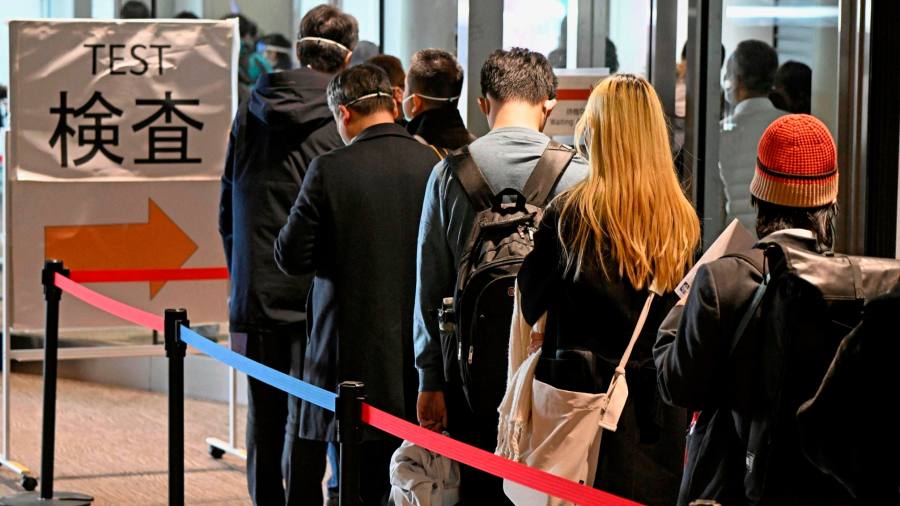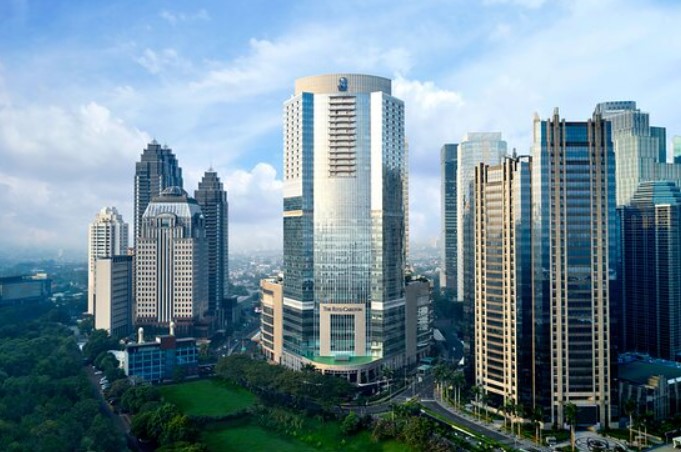Beijing has suspended visa issuance for visitors from Japan and South Korea in its first retaliation against the flurry of Covid-19 entry restrictions introduced in recent weeks by governments against travellers from China.
The Chinese embassy in Seoul announced on Tuesday it had stopped issuing short-term visas for South Korean travellers after Beijing vowed to punish additional entry requirements on arrivals from China over the wave of infections spreading through the country.
In a notice posted to WeChat, the embassy said it would begin reissuing visas after South Korea ended its “discriminatory entry restrictions against China”.
China also began limiting traffic from Japan on Tuesday, according to the Japan Association of Travel Agents, which said the Chinese visa centre had stopped processing visa applications for Japanese travellers except for individuals entering for humanitarian purposes. The visa centre could not be reached for comment.
China has suffered an uncontrolled outbreak of the virus in recent weeks after the government abruptly overturned its anti-pandemic zero-Covid policies that for almost three years heavily restricted inbound travel with entry bans for foreign nationals, lockdowns and mandatory quarantine.
The pace of the outbreak has prompted countries including Japan, South Korea, the US, UK, France, Italy and Spain to institute testing requirements for Chinese arrivals before boarding or on arrival. Japan has also restricted direct flights from mainland China to four airports.
The countries have accused Beijing of a lack of transparency in reporting its case and death numbers and raised concerns about the threat of new variants spreading from the country.
Beijing has responded by lambasting governments over the entry requirements, calling such measures “political manipulation”. On Monday, foreign ministry spokesperson Wang Wenbin reiterated China’s threat to “take reciprocal measures”.
During the pandemic, China has maintained the strictest entry requirements for international travellers among major economies, requiring hotel quarantines that stretched up to three weeks in length. Beijing shed the quarantine rules this month but arrivals still need a negative PCR test before flying, in line with some of the restrictions imposed against travellers from China.
Yet some countries have launched a charm offensive in an effort to lure Chinese tourists back to their shores after nearly three years of closed borders and interrupted travel.
A group of Thai cabinet ministers welcomed the first batch of Chinese tourists to Bangkok with flowers and gift bags on Monday. Thailand relies heavily on tourism revenue, and Chinese travellers accounted for about a third of visitors to the country before the pandemic.
Thailand had announced a proof of vaccination requirement last week before dropping it on Monday when it was set to go into effect.
In 2019, 155mn Chinese people travelled abroad and spent a combined $255bn, according to analysts at Citi, who projected a strong rebound in travel in the first quarter of 2023 and the mass return of tourism in the second.






More Stories
Exploring the “Otaku Island” of Enoshima
Japan eases travel with eVisas
Should you visit Japan or South Korea?